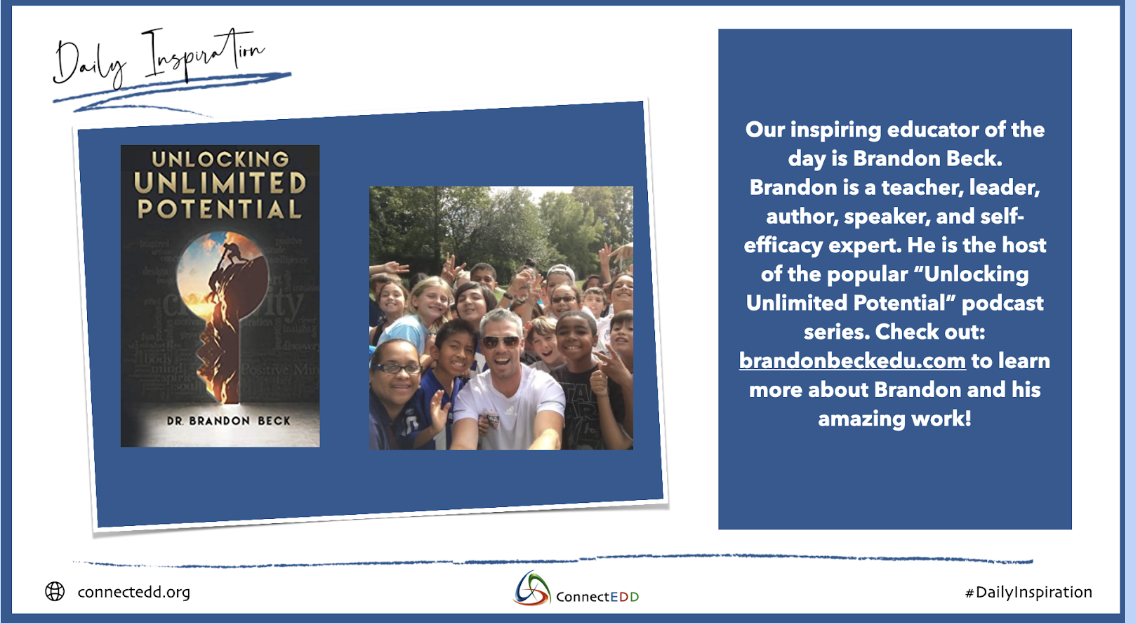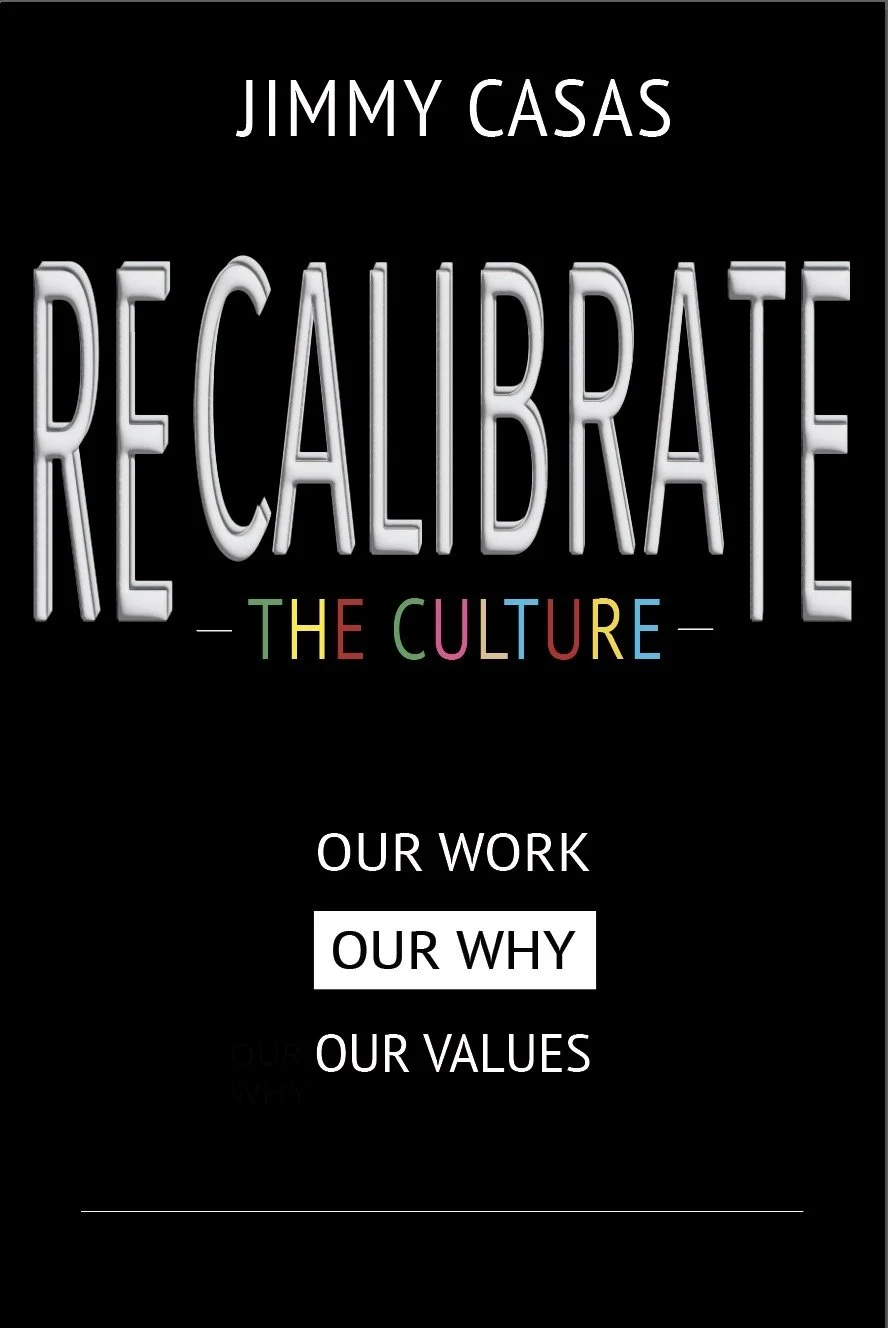CONNECTIONS: The Coffee Bean
We are excited to announce we have two new books coming soon. See more about both books below this blog post. This week’s blog post comes to you from our own Jimmy Casas, author of our newest book, Recalibrate the Culture! We hope you enjoy Jimmy’s new book as well as our two upcoming books! See more information below.
The Coffee Bean by Jon Gordon and Damon West is a simple reminder of how we can bring about positive changes in our personal and professional lives when we focus on our inner selves.
The challenges that educators face on a daily basis can seem daunting. The work is demanding and there are days that it can make us question, create doubt, change the core of who we are, and turn us into someone we no longer recognize. We are all vulnerable. The emotional toll of this job can cause us to lose our way.
The coffee bean story can help us reframe our thinking and recalibrate our why, our work, our values, and ourselves. By considering its lessons, we can bring a better version of ourselves to our family, our students, our colleagues, and our community.
The story asks the following question: What happens when we put a carrot, an egg, and a coffee bean in a boiling pot of water? The carrot softens and weakens. The egg hardens. But the coffee bean? It transforms the water into coffee. Both the carrot and the egg were impacted by the environment and the conditions they faced. However, when the coffee bean faced the same conditions, over time, it transformed the environment and its conditions to create coffee.
The trials and tribulations you are currently facing in your life are like the pot of boiling water: challenging, burdensome, and stressful. How we, as educators, respond to this adversity will determine our morale and the culture and climate in which we work and serve.
Our profession has been shaken to its core in the last few years. Recalibrate was written to support you, and more importantly, to assist all teachers, principals, and district office administrators in exploring their inner selves to understand the role we each play in terms of impacting the climate and culture of an entire campus when we are strategic and aligned in our practices. The classroom, building, and district levels must see themselves as one and must be intentional in replicating the processes, protocols, and frameworks provided in this book to recalibrate and bring about system-wide change and cultivate a healthier culture.
I believe that by equipping our teachers and leaders with a new way of thinking and with strategies for approaching their work more intentionally and effectively, we can revitalize our schools and make an immediate positive impact on the culture of every classroom and school across the country.
It is time! Time to Recalibrate!
(Reference: Coffee Bean, May 10, 2020, Gordon, West. YouTube, The Advantage)
Coffee Bean Lessons
1. The power inside you is greater than the forces outside you.
2. You always have the power in any condition to transform the environment you are in.
3. Practice focusing on what you can control and not worrying about what you cannot control.
4. Don’t try to change the world from the outside in.
5. Start with yourself and transform how you think and act to change the world from the inside out.
Thanks so much to Jimmy for this post and for writing an amazing new book. Thanks to all educators reading this and for the incredible work you are doing during these challenging times.
As always, Teach and Lead with Passion...
DAILY INSPIRATION EDUCATOR
(Please let us know about an inspiring educator you think we should highlight in a future newsletter by completing this brief form!)
NEW RELEASE!
Recalibrate the Culture: Our Why…Our Work…Our Value by Jimmy Casas
It is time to recalibrate our culture.
Recalibrate our why. Our Work, Our Values, Ourselves.
In Recalibrate the Culture, author Jimmy Casas examines the challenges that teachers, leaders, and schools face and shares his assessment of what makes the difference in the overall culture of a school–why do some continue to show positive results while others continue to struggle to maintain a healthy learning environment for all students and staff?
This book provides the necessary strategies and tools to assist all teachers, principals, and district office administrators in exploring our inner selves to understand the role we each play in how we can impact the climate and culture of an entire campus when we are strategic and aligned in our practices. The classroom, building, and district levels must see themselves as one and must be intentional in replicating the processes, protocols, and frameworks provided in this book to recalibrate and bring about system-wide change and cultivate a healthier culture.
When we equip our teachers and leaders with a new way of thinking and–more importantly–strategies for approaching their work more intentionally and effectively, we can revitalize our schools and make an immediate positive impact on the culture of every classroom and school across the country.
Recalibrate the Culture is available now on our website and via Amazon. Keep track of all our books here
Check out what Clint Pulver, author of, I Love It Here, had to say about the book:
COMING SOON!
Crafting the Culture: 45 Reflections on Matters Most by Joe Sanfelippo and Jeff Zoul
Nailing down a precise definition of culture can be tricky; at times, it seems as if culture is more a “feeling” than anything that can be quantified, measured, or seen. At the same time, the feeling of culture one gets when entering any school or classroom is palpable and it is relatively easy to distinguish between schools and classrooms with strong cultures from those with less productive cultures. Any leader interested in maximizing their influence on others and the performance of those they lead, whether first-grade students, a group of teachers, or a team of business professionals, must be intentional about focusing on the culture they are trying to build and maintain.
This book is a collection of short, targeted insights into school culture from two school leaders who speak about culture in presentations throughout the country. Crafting the Culture contains daily reflections on culture that include a focus on specific words and phrases we often hear from audiences when describing their ideal cultures of excellence. These forty-five short, daily reflections will inspire you to think about how you are currently crafting the culture in your own setting–in particular, your classroom, school, or district.
Each daily reflection in this book includes a meaningful quote about culture–or the specific culture focus of the day–as well as thoughts from the authors on the day’s culture focus followed by reflective questions and action steps for readers to consider. By carving out a few minutes each day to read the quote, passage, and questions, readers can then reflect on these and consider how they might apply to their role and their setting. Begin Crafting the Culture in your own setting by reading these inspirational daily passages!
Crafting the Culture will be available on our website and via Amazon in early October. Keep track of all our books here and look for Joe and Jeff’s new book to be added soon!
COMING SOON!
Creating Curious Classrooms, The Beauty of Questions by Emma Chiappetta
When teachers inspire and cultivate curiosity they improve student engagement, increase intrinsic motivation, enhance learning, and empower students to become lifelong learners. This book uses both anecdotes and research to elucidate the potential that student-generated questions provide in the classroom. Readers will walk away with inspiration, as well as tools and strategies for creating a curiosity-driven classroom environment.
Creating Curious Classrooms focuses on students’ questions: what we can learn from them and what we can do with them to deepen learning. This book does not advocate that teachers overhaul their entire philosophy. Instead, it provides an array of strategies for emphasizing inquiry, ranging from small tweaks that don’t change the curriculum at all, to the restructuring of entire units. Every teacher will be able to take action based on what they read in Creating Curious Classrooms.
The first section of the book is devoted to answering the question “Why Wonder?” We explore research and anecdotes that outline the many benefits of a classroom filled with curiosity, including engagement, motivation, learning, empowerment, and formative assessment.
The second section of the book digs into the variety of questions students ask, starting from the lowest rung on Bloom's taxonomy and ending at the highest. We discuss what teachers can learn from each question type, and how they can adapt instruction once each of these questions is asked.
The final part of the book is a toolkit for inspiring wonder and curiosity in the classroom. We look at concrete strategies, big and small, for getting students to ask more questions and improving the quality and "wonder factor" of such questions. The strategies give ways to plant the curiosity seed through classroom environment and culture as well as curiosity-inspiring prompts and activities. Further strategies help students improve the quality of their questions and act on them.
Creating Curious Classrooms will be available on our website and via Amazon by October 1st. Keep track of all our books here and look for Emma’s new book to be added soon!
CONNECTEDD’S TAKEAWAYS:
Thought for the Day: “If you want to live a happy life, tie it to a goal. Not to people or things.” Albert Einstein
Teaching Technique to Try: Assigning Roles for Group Work: Assigning student’s particular roles can be an effective way to structure group work. Sometimes certain students assume too much responsibility for a group’s work, while other students may be reluctant to contribute to the group’s activities. Assigning roles helps to distribute responsibility among group members and ensures accountability for all students’ participation. As students practice different roles, they have the opportunity to develop a variety of skills. Check out this link from Facing History and Ourselves for a step-by-step process for using this technique.
Eyes On Culture: We believe that culture is a true difference maker in any classroom, school, district, or organization. As a result, we focus much of the work we do on creating and maintaining positive and productive cultures. Culture Focus: Effort-Based Ability. High-performing schools with strong cultures are places in which adults and students at the school believe in the effort-based ability, meaning that, with hard work, effort, and practice, we can all get better at what we do. In fact, educators instill within the students they serve that being smart is “something you can get,” as opposed to “something you are.” Similarly, adults at the school believe that each of them can become smarter as educators, refining their skills and knowledge, and continuously getting better at what they do. The only competition that matters is becoming better today than you were yesterday and they keep reminding themselves and each other that the work they are doing is important, that they can do the work, and that they will never give up on one another as they strive to master new skills and content knowledge. Educators in such schools work intentionally to create a culture in which everyone believes in their own ability to become more proficient at what they do.
What are some other thoughts you have about Effort Based Ability? Please share your thoughts about a culture and gratitude via Twitter: @ConnectEDDBooks We would love to hear from you!




